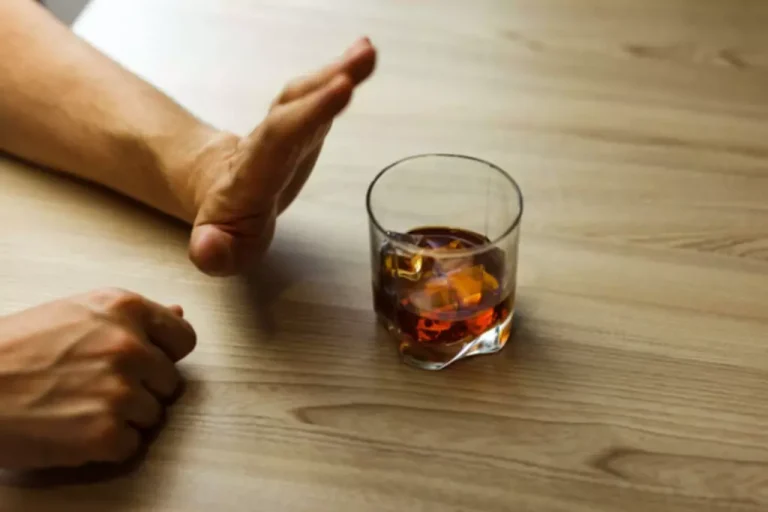
After sparking the good chemicals, the brain has to make up for it and ends up increasing the production of feel-bad chemicals to compensate. “Part of it is hormonal because does drinking make your depression worse cortisol is activated and can trigger some of these neurochemical cascades as well,” he says. ” self-assessment below if you think you or someone you love might be struggling with an alcohol use disorder (AUD). The evaluation consists of 11 yes or no questions that are intended to be used as an informational tool to assess the severity and probability of an AUD. The test is free and confidential, and no personal information is needed to receive the result. In addition, your doctor may prescribe medicines that are meant to lower alcohol cravings, which can reduce your desire to drink.
Health Challenges
Alcohol itself is categorized as a central nervous system depressant. When alcohol is ingested, the primary result is the body being unable to perform its responsibilities. This can be seen during periods of intoxication, when speech, walking, thinking, and many other functions are heavily affected. From a neurocognitive standpoint, alcohol significantly impacts many of the neurotransmitters (brain chemicals) that oversee our emotional well-being.

Symptoms of depression
- To date, only one intervention has specifically addressed heavy drinking among psychiatric patients.
- Naltrexone, Acamprosate, and disulfiram are also FDA-approved medications that can help curb alcohol cravings.
- If you feel you’re drinking more than you’d like or your alcohol use is making your depression symptoms worse, there are some things you can do.
- As it turns out, it’s a real phenomenon (clinically it’s called substance-induced mood disorder) that happens as a result of the physiological and psychological impact of drinking too much.
- Call 999, contact your local mental health crisis team or go straight to A&E if you’re able to safely.
A glass of water and a light snack can help you avoid a bad hangover. Even when you don’t have much time to spare, spending 15 minutes reading a good book, drawing or doodling, or even looking at cute animal videos can offer a positive distraction. Increased anger might lead you to pick a fight with a loved one, for example, while extreme sadness or self-loathing could lead to intense depression symptoms. In small to moderate amounts, alcohol can temporarily lift your spirits and help improve your mood. However, some medicines, known as monoamine oxidase inhibitor (MAOI) antidepressants, are very dangerous to mix with alcohol.
Alcohol Use Among Depressed Patients: The Need for Assessment and Intervention

Drinking alcohol can have serious consequences if you’re being treated for anxiety. Having a drink might seem like a good way to ease anxiety, but you may be doing more harm than good. He drank daily in his early 20s — around the time when he started experiencing suicidal thoughts. He says his drinking — and depression — “skyrocketed” at age 24 after his grandmother died. Gillian Tietz, host of the Sober Powered podcast, began feeling depressed around 10 years old when she faced bullying in school.
“The next day, I always felt horrible.”
In residential treatment, “an individual stays in a treatment setting, receives intensive therapy, and is physically separated from alcohol in order to recover,” says Kennedy. Because of this shared connection, treatment for both should include a diet to improve gut function and reduce endotoxin load that contributes to neuroinflammation. Following a Mediterranean diet rich in omega-3s, for example, might be one recommendation. Dr. Solomon also suggests doing things that distract you and take your mind off feeling bad for yourself—no, that doesn’t mean lying on the couch watching a Grey’s Anatomy marathon.
- In fact, alcohol’s effects can be similar to those of antianxiety medications.
- Alcohol can make you more likely to be depressed, and being depressed can make you more likely to drink alcohol.
- But she still felt that drinking helped — rather than hurt — her mood.
- Dopamine produces positive emotions that make you feel good and help reinforce your desire to drink, but alcohol affects your central nervous system in other ways, too.
Furthermore, there is likely to be significant individual variation in the level at which alcohol use negatively impacts depressive symptoms and depression treatment. Alternatively, clinicians may choose to recommend at least temporary periods of abstinence for their depressed patients. If you have certain conditions, including depression, you could be at an increased risk of getting alcohol use disorder. If you or your loved ones are worried about your alcohol use or think you have alcohol use disorder, talk to your doctor or a mental health specialist about treatment options. A key premise of interventions based on motivational interviewing is that ambivalence is normal (Miller & Rollnick, 1991).
Seeking extra support
A dual diagnosis can be complicated to treat, no matter the circumstances. The most common treatment options are included below, but know that recovery requires a personalized treatment plan that best suits your mental health needs. Though depression is experienced by many, it can often go undiagnosed and untreated. You don’t have to battle the depression alone and relying on alcohol to make you feel better will only cause further pain. Reach out to a mental health professional to talk about treatment and strategies for dealing with depression. The Centers for Disease Control and Prevention has found that 9 out of 10 adult binge drinkers don’t have a severe alcohol use disorder, but that doesn’t mean alcohol isn’t a problem for them.
Stopping antidepressants suddenly can be dangerous
- A glass of water and a light snack can help you avoid a bad hangover.
- They can take up to days to reach their full effect, and treatment with them usually lasts at least a year or longer depending on individual needs.
- “Part of it is hormonal because cortisol is activated and can trigger some of these neurochemical cascades as well,” he says.
These issues can create more anxiety as you cope with their symptoms. Addiction is a chronic, treatable brain disease, not the character flaw many people believe it to be, he stresses. “Over half of those who develop a substance abuse disorder may be genetically vulnerable,” says Dr. Anand. Additionally, Prashant Sharma, a board-certified psychiatrist and professor at Johns Hopkins University, says drinking alcohol can reduce levels of the brain chemical GABA.


Maybe you tossed and turned, had bizarre dreams, or woke up with your heart racing. It can cheer you up after a rough day or make you feel more sedated. Discuss these concerns with your doctor first to see if alcohol is safe for you. Alcohol is a sedative and a depressant that affects the central nervous system.
Stick to moderate drinking
“In our society alcohol is readily available and socially acceptable,” says Jill Bolte Taylor, PhD, author of Whole Brain Living, explains. “Depression and alcohol misuse are often tied because we take a depressant to counter a chemical depression which only makes it worse.” By Sarah Bence, OTR/LBence is an occupational therapist with a range of work experience in mental healthcare settings. For example, having a family member with an alcohol use disorder is a risk factor for both depression and alcohol use disorder.






